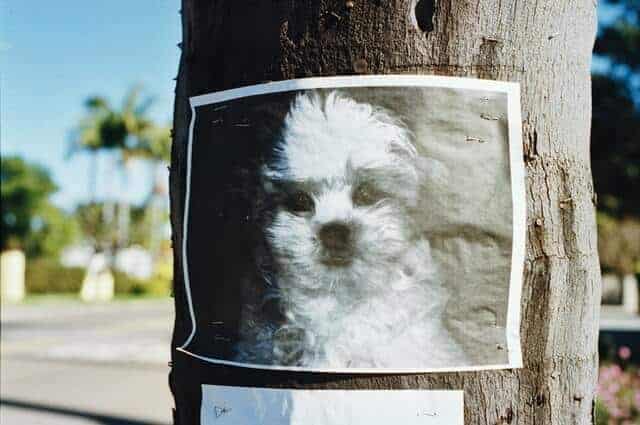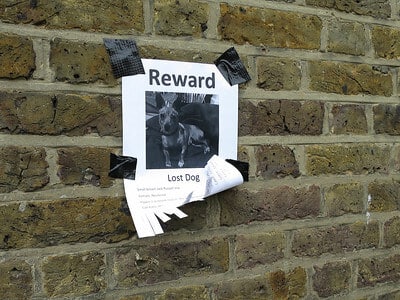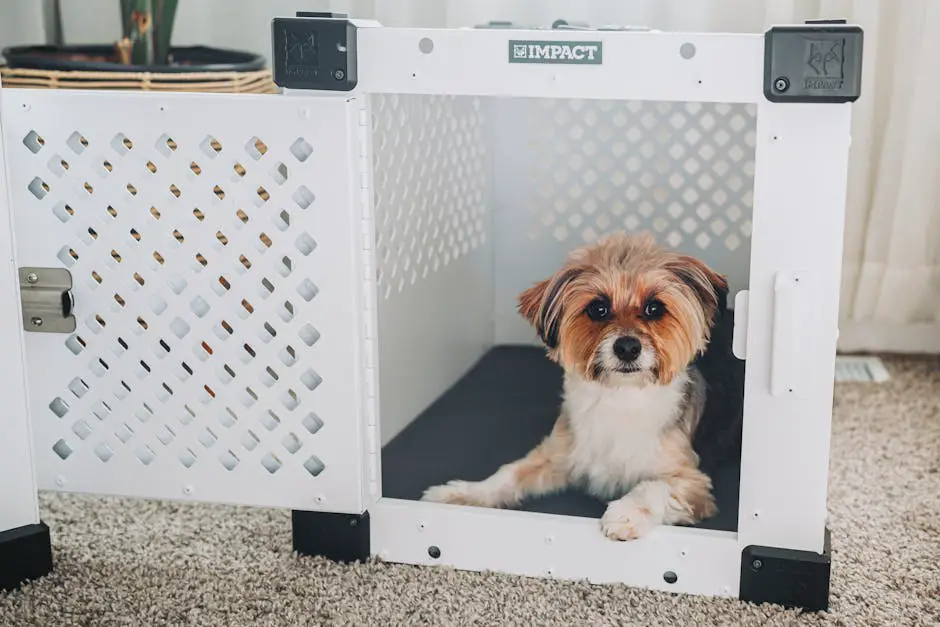When you bring a dog into your life, you very quickly get used to having them around the household, it makes you feel that you won’t be able to live without them. However, dog are curious animals that love to explore, play and chase things, which can lead to them becoming lost or separated from you. 15 percent of all dog owners will experience losing their dog at least once, with some experiencing losing their dog multiple times.
This article aims to help owners deal with their dog going missing. It will inform you on the reasons why dogs are missing, the actions you should take, and the things you can do to prevent your dog from going missing.
Why Do Dogs Go Missing?
It can be hard to read what is inside a dog’s head since we are unable to communicate directly with them but here are some ideas of reasons why dogs go missing from home:
They are chasing something.
Dogs are easily distracted by things that interest them. Chasing after something like squirrels could distract and lead them to unknown territory. If they get lost then sometimes it can be difficult for them to find their way home.
Walking Dogs without Leashes
While you may have done obedience training with your dog it doesn’t mean it’s safe for you to walk them off the leash in unenclosed areas. Whether it is them getting distracting and chasing off after something or them stopping without you noticing, having them off the leash increases the chances that you will lose them.
Loose collars and harnesses
When you put a collar or harness on your dog, if it’s not adjusted to be the correct size for them then they may seek to get out of it and once they’re off the leash they’re free to run.
Our preference is to use a harness that is designed to prevent your dog from being able to slip out. Not only do these reduce the chances of your dog escaping but they’re also less likely to cause harm (such as collapsed trachea) to your dog should they pull against their leash.
Insecure areas for them to escape from
Any time that you leave your dog alone they are going to be free to wander and explore. If you leave an open door or they’re in an area which isn’t closed in then they may escape.

Table of Contents
What should you do if you lose your dog?
Your dog going missing is a stressful experience but you can increase your chances of finding them quickly if you start taking action as soon as you’re aware they’re missing.
Contact the local shelters and vet.
According to recent studies, about 6 percent of dog owners found their lost pets at a shelter. It is important to inform your vet, just in case someone brings in your dog to get treated for possible injuries.
Vets and shelters are also the first place that most people will take a dog they’ve found if they’re unable to get in contact with the owner.
Search areas where you usually walk at.
If your dog has decided to go for a walk by itself then it may have gone to some of the areas that it likes. If you have an area that you go where they get to run around and play then it may be worth looking there.
Be careful of asking for money to provide details about your dog.
Unfortunately there are people out there who may seek to take advantage of you while you’re desperately trying to find your dog. Be wary of people that claim to have found your dog but ask that you send them some money before they return your dog.
If this happens then make sure to ask them to provide some details of your dog that were not on the lost posters or obvious. Things like what color collar they are wearing may be a good option.
Generally it is better to not offer financial reward for finding your dog. The vast majority of people who will pick up a lost dog are dog lovers themselves and will want to reunite you both.
Inform your friends and family.
No one knows your dog better than your friends and family who are familiar with the way your dog looks. Additionally, they will be of great help because the dog would be able to recognize them and may just come straight up to them as they are a familiar face.
The more loved ones that help in the search, the more chances of finding your dog.

How to prevent your dog going missing?

After you have found your dog, you definitely don’t want to have to go through the anxious process again. Here are some precautions to follow:
Secure your home
While this sounds like common sense it is frequently ignored. Take some time to think about the areas around your home where your dog may be able to escape. Do you have a gate which if pushed hard enough will open? How about your fence? Do you have wood stacked up next to it that your dog might be able to climb up to get over the fence?
Jack Russell Terriers are a great example of escape artists, they’ve been known to use trees to get over fences and will use anything they can to jump over a fence.
Spay / Neuter Your Pet
If your dog is in heat then it is more likely to try to escape and find another dog to mate with. If you spay them then you’re not going to have this problem.
This also has the added advantage when you have a female dog that you’re going to have less issues with male dogs sniffing around and trying to mark your home.
Leave Them at Home
If your home is properly secured then it can be better to leave your dog at home if you’re not sure you’re going to be able to keep them secure while you’re out. A lot of establishments don’t allow dogs indoors, which can mean you have to tie your dog up outside.
Collars and ID tags
While not something that will stop you from losing them both collars and ID tags help identify the dog should it get lost.
Having contact details on the ID can help anyone get in contact if they find the dog.
Microchips
Similar to missing devices, dogs can easily be traced through implanted microchips. They can be scanned at a shelter or clinic, which will reveal your contact information.
Be Aware of Their Safety
As a pet owner, it is your responsibility that you prioritize their safety. Don’t bring them to places that are dangerous, and keep them away from other animals that might threaten them.
Wrapping up
Losing your dog, even for a short while can be an incredibly stressful experience. Knowing that they’re able to get around quickly and not always paying attention to vehicles that might be on the road can bring up all sorts of nightmares of what can happen.
While following the above won’t make the experience any more enjoyable, hopefully they will help you to find your pooch faster.
Are there any tips that we have missed that you have used? If so let us know through our contact us page.







